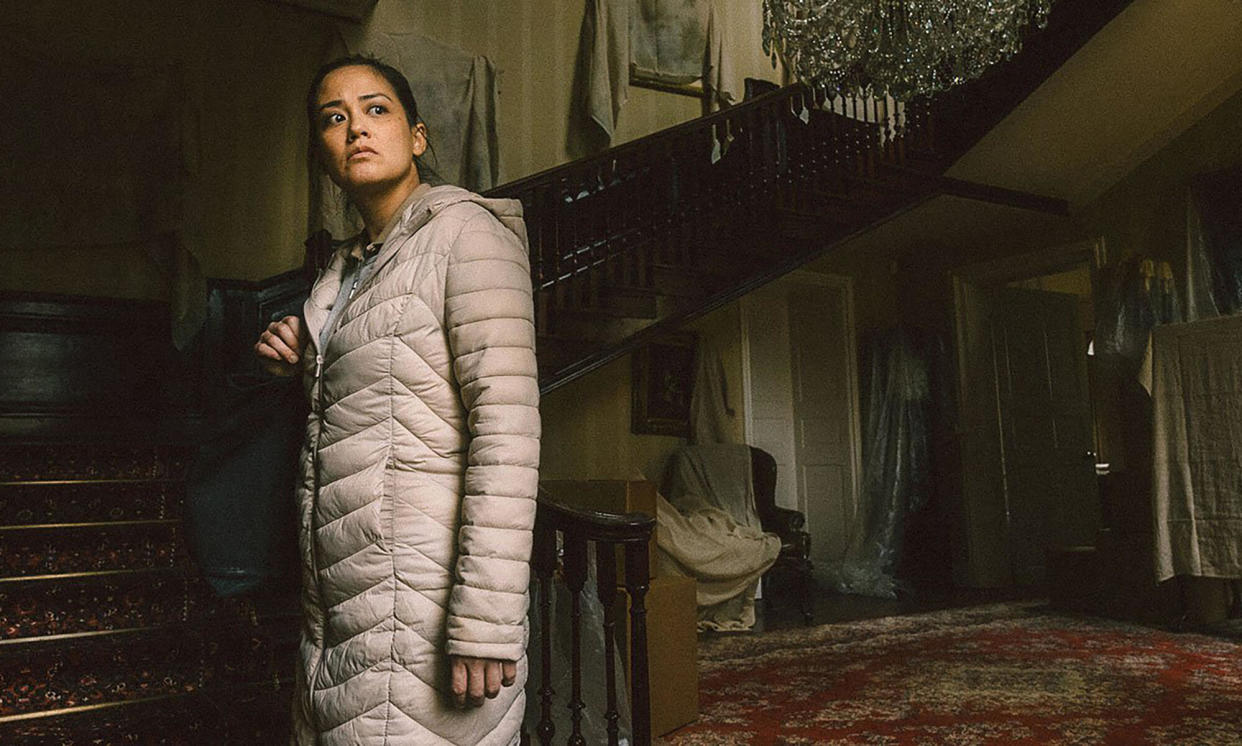Raging Grace review – politicised critique of imperialism in horror movie form

There are interesting ideas – and a tremendous final choir sequence – in this scary movie; it offers a critique of British colonialism, and also plays with the text of Rudyard Kipling’s 1899 poem The White Man’s Burden that urged the United States to assume the thankless imperial task of civilising and subjugating the people of the Philippines, and nobly overlooking how ungrateful they are going to be. There is ingenuity here, and good acting, but the film for me feels flawed by its strained melodrama, an absence of scares and by a very odd scene of almost unreal, farcical absurdity.
Joy (Max Eigenmann) is a Filipino woman in the UK with a young daughter, Grace (Jaeden Paige Boadilla); Joy is doing undocumented work as a cleaner and faces racism and exploitation and imminent expulsion. But then she is employed by the haughty Katherine (Leanne Best) to work in a remote, vast mansion as a housekeeper to Katherine’s bedridden and ailing uncle, Mr Garrett, played with relish by David Hayman. Katherine has no idea about Joy’s daughter and there are some weirdly Feydeau-ish scenes when Joy has to hide the girl and somehow distract Katherine from spotting her.
But the film kicks into a higher gear when Mr Garrett discloses that he had a Filipino nanny as a boy and now has a somewhat creepy orientalist connoisseurship of the Filipino servant class. There are good dialogue scenes between Hayman and Eigenmann but Brit-horror has a bad habit sometimes of simply placing the action in a big old house with creepy portraits on the walls and hoping that the location is going to supply all the atmosphere. It generally feels secondhand, though the final musical scene has an authenticity and heart that the rest lacks.
• Raging Grace is released on 29 December in UK cinemas.

 Yahoo Movies
Yahoo Movies 
